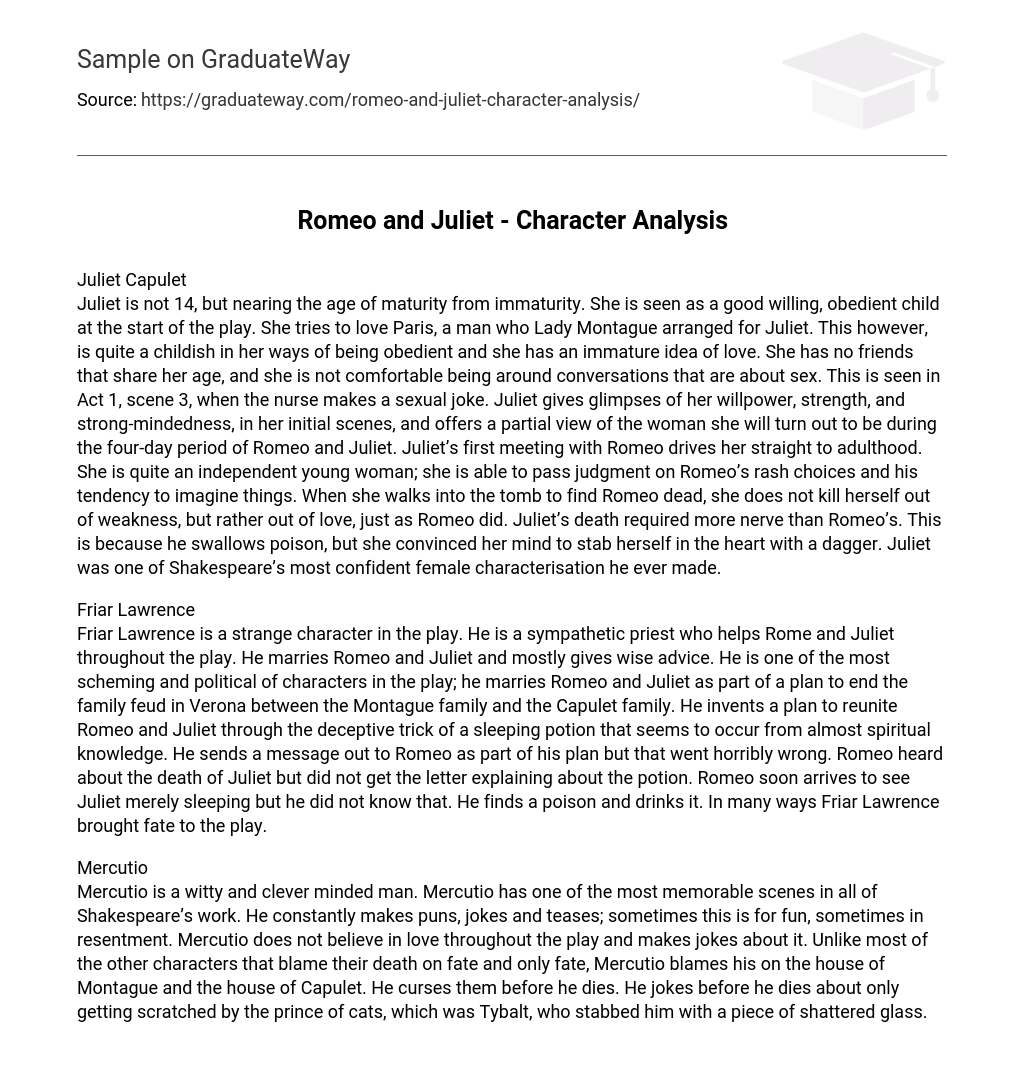Juliet Capulet is portrayed as a young girl who is on the verge of maturity. At the beginning of the play, she is seen as a obedient child who tries to love Paris, a man arranged for her by Lady Montague. However, her ways of being obedient and her understanding of love are quite childish. Juliet lacks friends her own age and feels uncomfortable discussing topics related to sex, as shown in Act 1, scene 3 when the nurse makes a sexual joke. Despite this immaturity, Juliet displays glimpses of her determination, strength, and strong will in her initial scenes, foreshadowing the woman she will become over the course of four days with Romeo. When she meets Romeo for the first time, she quickly transitions into adulthood. She is an independent young woman who is able to criticize Romeo’s impulsive decisions and tendency to imagine things. Even in her tragic death, Juliet displays more courage than Romeo. While he chooses to drink poison, she gathers the courage to stab herself in the heart with a dagger out of love for Romeo. Juliet stands as one of Shakespeare’s most confident female characters.
Friar Lawrence is a peculiar character in the play. He is a compassionate priest who assists Romeo and Juliet throughout the story. He conducts their marriage ceremony and primarily offers wise counsel. Among the characters in the play, he is one of the most cunning and politically inclined; he unites Romeo and Juliet in matrimony as part of a strategy to end the ongoing feud between the Montague and Capulet families in Verona. He devises a plan to reunite the star-crossed lovers through the deceptive tactic of a sleeping potion, seemingly possessing almost divine knowledge. As part of his plan, he dispatches a message to Romeo, but unfortunately, it goes awry. Romeo learns about Juliet’s supposed death but does not receive the letter explaining the potion. Romeo arrives to find Juliet seemingly asleep, unaware of her true condition. Mistakenly believing she is deceased, he consumes a vial of poison. In many ways, Friar Lawrence plays a significant role in shaping the fate of the story.
Mercutio is a witty and clever minded man. He is also known for having one of the most memorable scenes in all of Shakespeare’s work. Throughout the play, Mercutio constantly makes puns, jokes, and teases, sometimes for fun and other times out of resentment. Unlike most of the other characters who solely blame their death on fate, Mercutio holds the house of Montague and the house of Capulet responsible for his demise. As he nears his death, Mercutio curses them and jokes about being only scratched by Tybalt, also known as the prince of cats, who ultimately stabs him with a piece of shattered glass.





